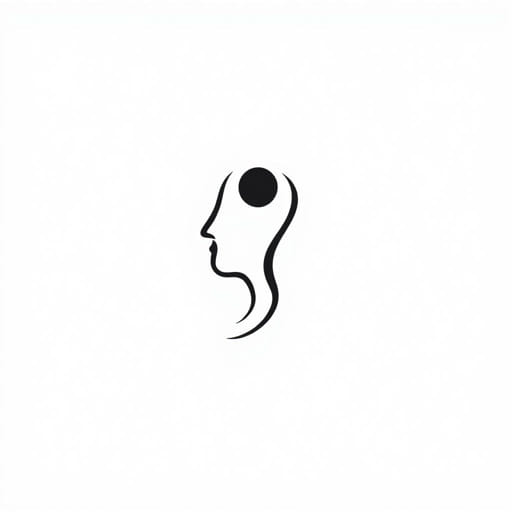In everyday life, the ability to perceive subtle differences, make sound judgments, and recognize truth from falsehood is essential. This cognitive skill is often referred to as discernment. The meaning of discernment is especially important in philosophical, religious, and interpersonal contexts. In Xhosa, a language widely spoken in South Africa, discernment can be translated as ukuqonda, which broadly refers to understanding, insight, or comprehension. Exploring the meaning of discernment in Xhosa not only deepens our understanding of the word itself but also reveals how values and language are deeply intertwined in African cultures.
Understanding the Word Discernment
Definition in English
Discernment refers to the quality of being able to grasp and comprehend what is obscure. It involves the mental capacity to distinguish, evaluate, and make wise choices. This ability is crucial in both personal and professional settings, where good judgment is needed to avoid errors or harm.
Discernment in Xhosa: Ukuqonda
In the Xhosa language, discernment is best captured by the word ukuqonda. This term conveys more than just recognizing the surface of a situation it emphasizes a deeper understanding, a thoughtful awareness, and the capacity to see beyond appearances. It is often used in spiritual, emotional, and moral contexts to signify inner clarity and wisdom.
Cultural Significance of Discernment in Xhosa-Speaking Communities
The concept of discernment or ukuqonda plays a significant role in Xhosa culture. It is a valued trait, especially among elders and leaders, who are expected to exercise sound judgment for the benefit of the community. In traditional settings, a person with discernment is seen as wise, balanced, and capable of resolving conflict without bias.
Role of Elders
- Elders are often seen as bearers of discernment.
- They are consulted during disputes, family matters, or when community decisions need to be made.
- Their ukuqonda is not only intellectual but also emotional and spiritual, gained from years of lived experience.
Discernment and Ubuntu
The African philosophy of Ubuntu the belief that one’s humanity is tied to the humanity of others intersects with the idea of discernment. One who exercises discernment in Xhosa society is expected to act with empathy, integrity, and fairness, keeping the well-being of the community in mind. This makes discernment a relational value, not just an intellectual one.
Examples of Discernment in Practice
In Daily Life
Imagine a situation where a family must choose a school for their child. In this case, discernment involves evaluating various options, asking questions, and considering the long-term implications. A parent using ukuqonda will not just pick the most popular school, but the one best suited for the child’s growth.
In Leadership
A community leader facing a land dispute between two families must practice discernment. Instead of favoring one side impulsively, they will listen carefully, weigh the evidence, and seek a fair solution. This shows the importance of calm, wise thinking what the Xhosa call ukuqonda.
In Spiritual Settings
In religious or traditional rituals, discernment may be needed to interpret signs, dreams, or messages. A spiritual healer or elder might be called upon to understand the meaning of events that are not easily explained. This type of discernment blends intuition with cultural knowledge.
Discernment in Education and Decision-Making
Teaching Ukuqonda to the Youth
In Xhosa communities, teaching discernment starts early. Children are encouraged to listen more than they speak, to observe, and to ask thoughtful questions. Through storytelling, elders pass on moral lessons that emphasize the importance of choosing wisely and seeing beyond surface appearances.
Making Informed Decisions
Whether it’s choosing a career, resolving a misunderstanding, or managing finances, discernment is a critical life skill. It involves:
- Identifying the real issue
- Evaluating available information
- Asking for advice when necessary
- Reflecting before acting
This decision-making framework aligns well with the meaning of discernment in Xhosa, where patience and insight are considered strengths.
Discernment as a Personal Quality
Characteristics of a Discerning Person
People who practice discernment usually share some common traits:
- Thoughtful and reflective
- Good listeners
- Not quick to judge
- Emotionally intelligent
- Open to learning and feedback
These qualities are admired in both traditional and modern Xhosa contexts. A person who is considered discerning often becomes a role model for others.
Building Discernment
Though some people seem naturally discerning, it is a skill that can be developed. Here are a few ways to nurture ukuqonda in oneself:
- Read broadly and deeply
- Engage in honest self-reflection
- Practice empathy and try to understand other perspectives
- Spend time in silence or meditation
- Seek counsel from wise mentors
Why Discernment Matters in Today’s World
In an era where misinformation, noise, and distractions are constant, the need for discernment has never been greater. Whether it’s discerning truth in the news, making career choices, or navigating personal relationships, the ability to think clearly and choose wisely is invaluable. In Xhosa culture, ukuqonda remains a timeless virtue encouraging people to live with awareness, wisdom, and balance.
Applying Ukuqonda Globally
Though the term ukuqonda is rooted in the Xhosa language, its essence is universal. Everyone, regardless of language or background, can benefit from understanding and applying the principles of discernment. It promotes clarity in thought, respect in interaction, and soundness in judgment all qualities that make a better society.
The meaning of discernment in Xhosa, expressed as ukuqonda, offers a rich and multi-dimensional understanding of how people can see clearly and act wisely. It is a term that goes beyond intellectual ability and touches on moral, emotional, and communal awareness. As a key value in Xhosa-speaking communities, discernment remains relevant not only within African cultures but across global societies that strive for wisdom, empathy, and responsible decision-making. By appreciating and practicing ukuqonda, we contribute to a world where insight and understanding are prioritized over haste and division.
